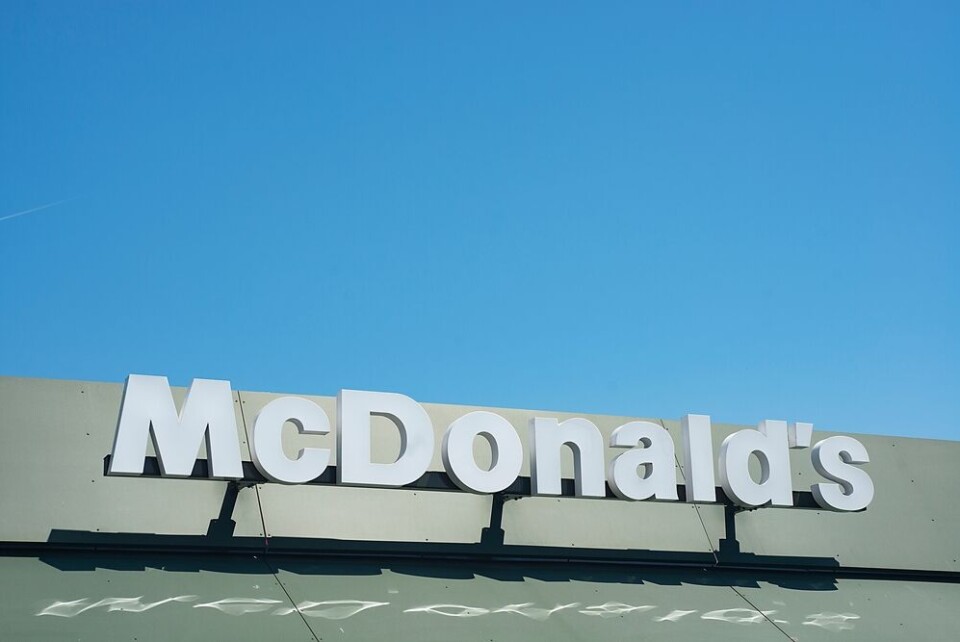-
Scam calls in France more than double in a year
Complaints about unsolicited calls are second only to those about fibre optic internet
-
‘Medical deserts’ major issue in upcoming local elections in France
Access to healthcare is now a more pressing concern than education, mayors say
-
‘Digital ID’ to be accepted at French airports this summer
Users of the France Identité app will be able to board certain flights using ID on smartphone
How McDonald’s, likely new Ligue 1 football sponsor, won over France
Adapting to French culture helped make burger chain biggest in country

Fast food giant McDonald’s is primed to claim the naming rights to one of France’s leading sporting competitions, according to a number of sources including Le Parisien.
The American chain is leading the race to take over naming rights for Ligue 1 – the top division of France’s football pyramid – in the coming days, and will reportedly pay around €20 million per year for the privilege.
The final announcement will be made on March 21.
It comes as McDonald’s was crowned France’s largest restaurant chain last year, with 1,560 outlets across the country.
However, news of the fast food chain’s success comes in juxtaposition to a study conducted at Montpellier university that states almost half of all adults in France are either overweight or obese.
Read more: Obesity in France must be made national priority, say health groups
The average spend in a McDonald’s in France is between €12 and €13 per head – higher than almost any other country in the world.
Almost all of its restaurants in France are run as franchises, although some of these franchises operate several hundred restaurants.
Adapting to French culture sparked success
McDonald’s was forced to adapt its strategy in France after a partially-built restaurant in Aveyron was torn down by a group of farmers in 1999.
TV pictures of the event were shown all over the world, and analysts said it symbolised a rejection of American fast food in France.
A year later, another restaurant in Quévert, Côtes-d’Armor, was bombed by Breton separatists, killing a 27-year-old waitress. No one was ever convicted of the murder.
Local restaurant managers told their bosses in the US after these attacks that the only way the McDonald’s could survive in France was if it adapted to the country – and they were given permission to do so.
Proper tables for sit-down meals were installed, and the menus changed for French tastes, including baguette sandwiches and separate salads.
The chain also changed its corporate colours in France, from the garish red and yellow of the US company to a toned down green and yellow, still in use today.
A big effort was also made to get French farmers on board.
The company claims 75% of all food it sells comes from here, and that 30,000 French farmers work directly with it.
It now has 79,000 employees in France, with more than 80% on CDI full-time contracts.
Read more: Popeyes, Wendy's, McDo: why fastfood restaurants are booming in France
Some still avoid chain, and competition is growing
In spite of its success, McDonald’s remains shorthand in France for malbouffe (junk food), and the opening of restaurants in smaller towns does not always go down well.
One example was in Charente, where permission to open a McDonald’s in Barbezieux Saint-Hilaire, granted by the mayor, was compared unfavourably by locals to a council decision to shut down the town’s swimming pool due to increased electricity costs.
However, competition has grown in recent years, including from Burger King, another fast food chain with roots in the US.
It returned to France in late 2013, having withdrawn from the market here in 1997, convinced that hamburgers would never take off. It now has 500 restaurants here.
In response, McDonald’s revamped its signature Big Mac burger in France in February.
The new recipe includes thicker, fluffier buns that are toasted for longer, while the sesame seeds on top are distributed to give a more ‘homemade’ appearance.
The onions are now cooked directly on the burgers, and cheese is taken out of the fridge earlier so it melts better.
In a presentation of annual results, its global CEO Chris Kempczinski identified France as the country where there was “most pressure in the market” despite its success.
Read also
McDonald’s France to offer fast electric car charge points
McDonald’s France defends charging €1.75 for ‘filtered’ tap water
























